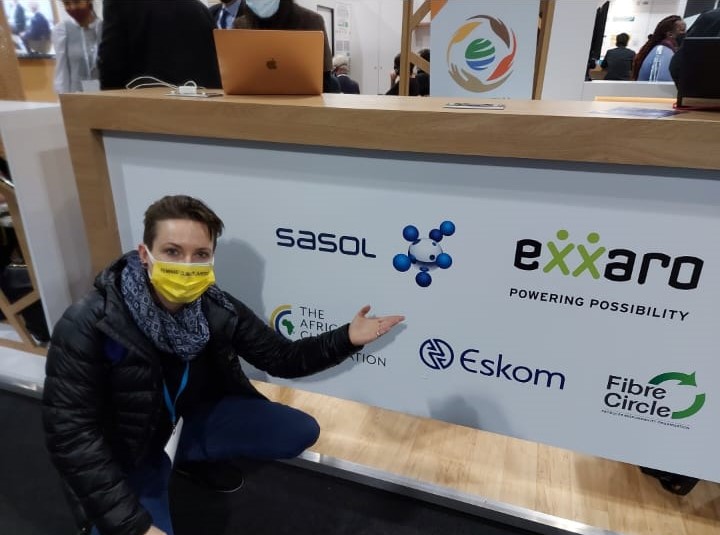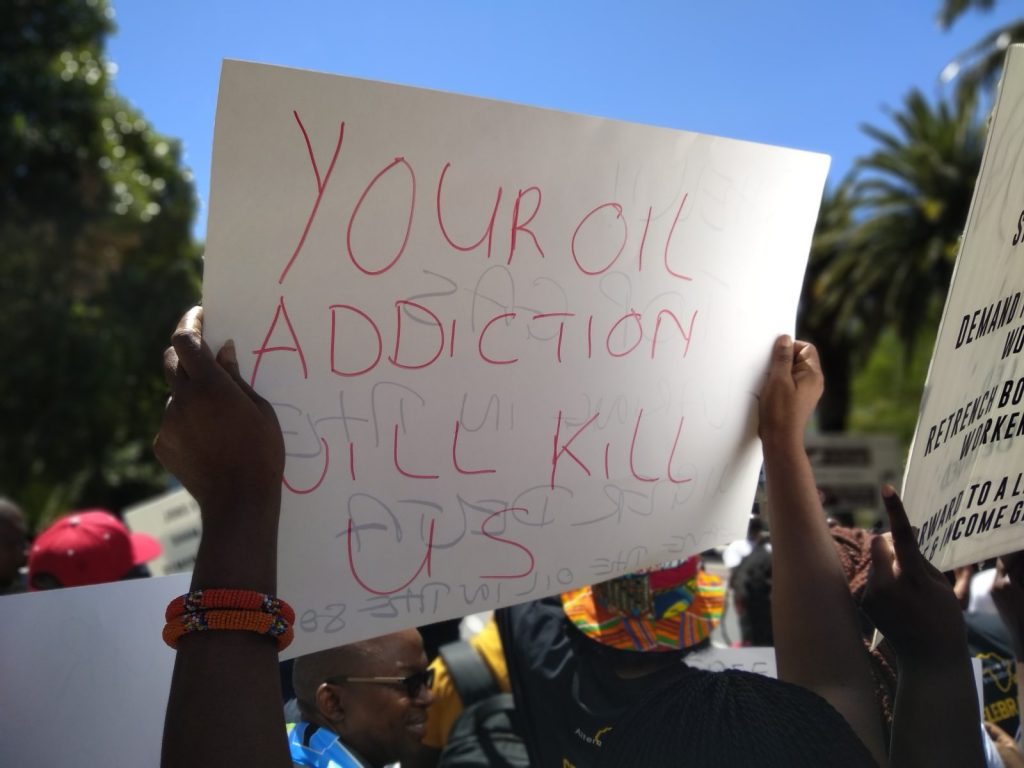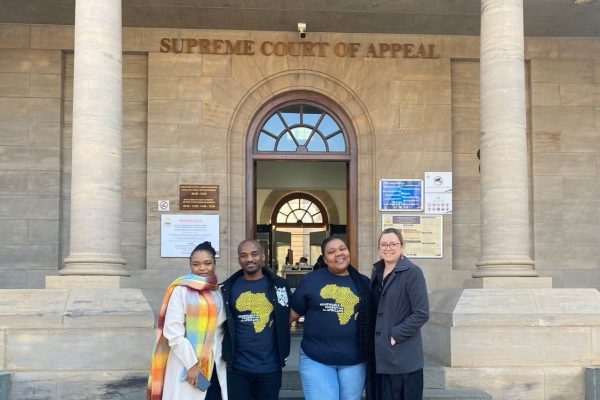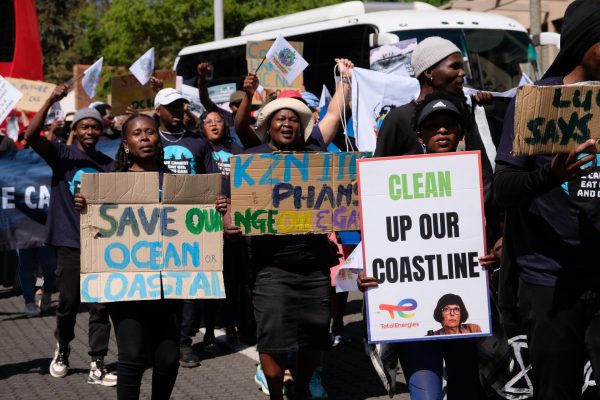By Lauren Nel
Considering World Environment Day (5 June 2024), United Nation’s Secretary General, António Guterres, gave a speech in which he highlighted the urgency of the climate crisis, “This marks twelve straight months of the hottest months ever” and “…every turn of the calendar has turned up the heat”.
It was made clear that at the current rate that we are releasing carbon dioxide into the atmosphere, we will use the whole of the carbon budget before 2030 and so the world’s temperature will rise.
These warnings are substantiated with the World Meteorological Organisation finding that there is an 80% chance that for at least one of the upcoming five years, the annual temperature will temporarily exceed the Paris Climate Agreement‘s goal of 1.5 degrees.
Greenwashing
One line that stood out from Guterres’s speech is that “we are the danger, but we are also the solution”. More than ever, to have a chance at a better future, we must stop fossil fuel expansion and see the real increase of renewable energy.
“Being part of the solution” has taken many forms, one being tackling false narratives. Included in this is “greenwashing”, which has been described by the United Nations as “misleading the public to believe that a company or other entity is doing more to protect the environment than it is, greenwashing promotes false solutions to the climate crisis that distract from and delay concrete and credible action”.
Greenwashing has taken its most dangerous form in the fossil fuel industry, which has known about climate change for over 50 years ago. Instead of highlighting this concern, corporate decision makers decided to create misinformation campaigns which create confusion around the issue – as stated by the Union of Concerned Scientists.
Advertising and Fossil Fuels
Misinformation cannot be tolerated, says the Secretary General Guterres:
“Many in the fossil fuel industry have shamelessly greenwashed, even as they have sought to delay climate action – with lobbying, legal threats, and massive ad campaigns. They have been aided and abetted by advertising and PR companies – Mad Men – remember the TV series – fuelling the madness. I call on these companies to stop acting as enablers to planetary destruction. Stop taking on new fossil fuel clients, from today, and set out plans to drop your existing ones. Fossil fuels are not only poisoning our planet – they’re toxic for your brand. Your sector is full of creative minds who are already mobilising around this cause. They are gravitating towards companies that are fighting for our planet – not trashing it.”
Imagine an advertisement which begins with a father and child riding a bike down a quiet path. The next scene shows the ocean with offshore wind power in the background. Then we see a quiet village where a resident is charging an electric car, a woman is walking her dog down a clean road showing solar power charging points, with the final scene stating that UK is ready for cleaner energy.
Then imagine polluted water, dead fish, water from a tap that is brown from the oil spill, a warning board next to a river, dark from the pollution, that cannot be used to drink; fish or swim in, water that is stained with a glossy black sheen, in the wilderness a warning sign stating contaminated area and to keep off and dark soil stained with raw oil.
This is the Guardian’s video of the impact of a Shell oil spill in Nigeria. These two images are about the same company. However, the first advert was banned.

Challenging Advertisement of Fossil Fuel Companies
On 7 June 2023, the Advertising Standards Authority in the United Kingdom banned the advertisement due to Shell’s environmentally damaging practices. While it was recognised that Shell has been involved in renewable energy projects, this is not its main business, which is the development of fossil fuel projects. (Ruling here)
On 30 January 2024, the Ad Standards in Canada made a similar decision. This related to an advertisement stating that “B.C LNG WILL REDUCE GLOBAL EMISSIONS”. The decision found that using the term “will” made it seem like an absolute statement, which the council found could not be substantiated. It was not made clear that the statement was made in terms of moving from coal to gas. It found that the statement of LNG being good for the environment was greenwashing. This decision was disclosed anonymously and reported on by DeSmog. The advertiser has appealed the decision.
Newest Complaint
On 10 June 2024, Fossil Free SA filed the first South Africa greenwashing complaint at the Advertising Regulatory Board against TotalEnergies. This is due to an advertisement which states that participants must share their “favourite summer moments at SANParks” and that TotalEnergies is committed to “sustainable development and environmental protection”.
This is against a backdrop of TotalEnergies’ 100-year legacy being described as “destruction in Africa”, “a legacy of destruction” and a “dark legacy”. TotalEnergies has been involved in environmental destruction, human rights abuses, a campaign of misinformation on climate change and is one of the most polluting companies. Its negative impacts have been felt in Burma, Uganda, Tanzania, Mozambique and South Africa (to mention a few).
The Future of Advertising
Court cases and legal reform have jointly been done against greenwashing. However, this trend of stopping false advertising is one step closer to stopping the continuation of fossil fuels expansion. This trend will make a statement to fossil fuel companies that the public is not going to be misled and misinformed moving forward about what a just energy transition should be. It is time, we use all mechanisms available to us to ensure that fossil fuels are phased out and that we keep the tripling of renewable energy promise pledged at COP28. As stated by the Secretary General, “I urge every country to ban advertising from fossil fuel companies”.







